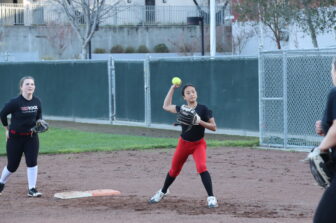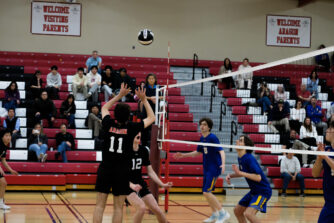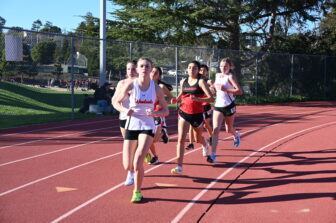Traditionally, the varsity teams represent a collection of the school’s best athletes for a sport. Most of the time, those supreme student-athletes are the upperclassmen, who typically have more experience than their freshmen and sophomore counterparts. Furthermore, upperclassmen are generally considered more physically and mentally prepared for the challenging, competitive atmosphere associated with varsity.
However, in recent years, there has been a subtle increase in the number of underclassmen assuming roles on varsity teams. As teams bid farewell to their top-tiered seniors, the departure creates a void that has been filled by an increasing number of freshmen and sophomores who the coaches consider helpful to the team’s performance.
Although some coaches reserve doubts as to whether or not freshman and sophomores are able to handle the pressure as varsity members, girls varsity basketball coach Annette Gennaro dismisses those doubts, saying, “I believe that anyone who is good enough to be there and get on the playing field should be brought up to the upper level, regardless of age and grade level. If they are able to hold on their own on the court and act mature physically and mentally with varsity players, they should not be limited to their potential.”
Caroline Yeh, a sophomore varsity soccer player, acknowledges this difference between upperclassmen and lowerclassmen and explains the differences between the psychological process that may exist between the two. “Oftentimes older opponents are mentally and emotionally stronger, so it doesn’t bother them as much when they make a big mistake,” she says. “It’s easier for them to get back into the game than it would be for me,” says Yeh.
Pertaining to the physical challenge of varsity competition, freshman and girls varsity basketball player Kinako Miyake says, “One of the main challenges for me was the intensity of the competition. It was much harder to play in the varsity level because you run a lot and the level of competition spans all four grades.”
This discontinuity with respect to the physical and mental aspects of the players remains obscure to some. Senior Alexander Koshy, a two-time varsity soccer player, says, “The underclassmen in the team are being treated the same. They are very talented, and it is really hard to tell them apart from the rest of the squad.”
Sophomore Aaron Bolatro, a first-time varsity player and starting guard on the boys basketball team, explains how his status on varsity has been integral in both helping him gain experience and assume a different perspective of the game. “As a junior varsity [player] last year, I was looked [at] as a leader even though I was just a freshman,” says Bolatro. “Now, as a varsity member, I look up to the seniors, and they were such an exceptional help. They offered me advice to the game, such as fixing my shot, and they [pushed] me to new extents. There is also a big commitment when joining the varsity team; however, the varsity players treated me the same, and they brought me in.”
Moreover, top singles player junior Landers Ngierchemat is also grateful for the experience he has accumulated from his two years on varsity. Ngierchemat is able to apply what he learned previously to his playing career today. “As an underclassmen, the juniors and seniors were the best players on the team. [They had] more experience, and were the kind of people [who] I wanted to be,” says Ngierchemat. “Now, as an upperclassman, I learned not to be nervous during matches. I also [have] learned that I am still growing and developing in my game; it is a process that you will never complete, because there is so much room to improve on.”
For Koshy, his interaction with the underclassmen has imparted many lessons to him that he will cherish and carry into the college atmosphere. “You learn a lot when playing with a diverse group of individuals. I was surrounded by the talent, and just the proximity of the team allows us to communicate and help each other. This experience really [built] my confidence and my leadership skills. It taught me to be patient with other players, because they are just adapting to the new environment. It also taught me to be understanding with them and what are they going through. Also, some of the advice the upperclassmen offer to the underclassmen goes beyond the sport,” says Koshy.
Although the transition from playing in junior varsity to varsity may be intense for underclassmen, many say that these young, rising stars have thus far able to represent a reliable asset to their team. Most notably, after developing enough confidence in their athletic ability and themselves, the age disparity is henceforth voided and the individuals become just another player on the team.
“[The underclassmen on varsity] just show that talent can be displayed in any kind of age or grade level. Also, the chemistry of the team has been perfect,” says Koshy.



